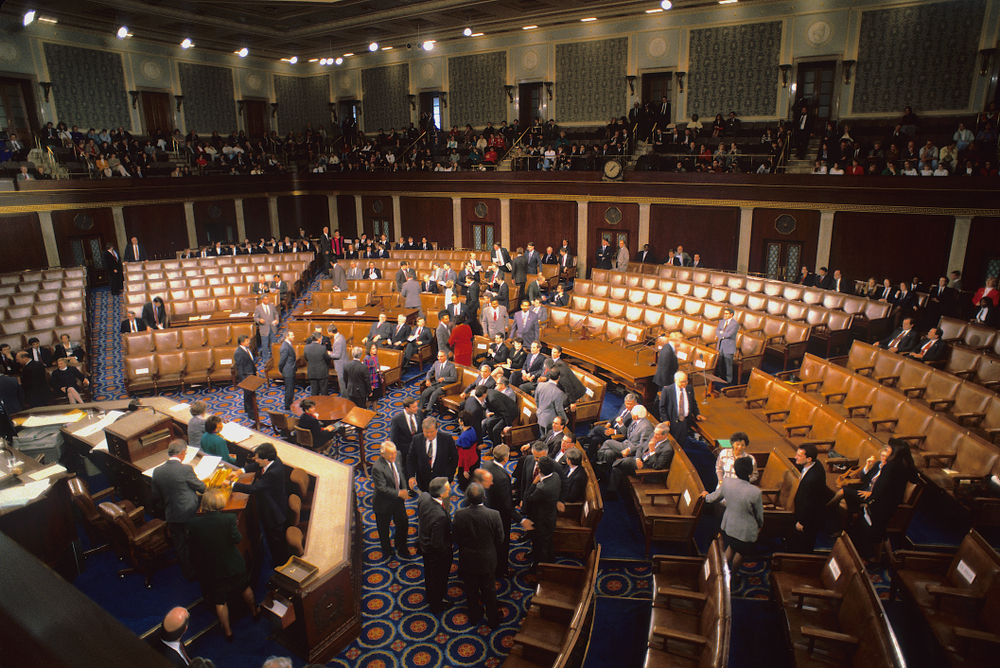WASHINGTON — Congress reauthorized a key juvenile justice bill today, handing a win to youth advocates who have fought to update the legislation for more than a decade.
The Senate unanimously approved a five-year reauthorization of the Juvenile Justice and Delinquency Prevention Act (JJDPA) on Tuesday night using a fast-track procedure that requires the support of every senator. The House backed the Senate’s version of the bill this morning, sending it to the White House for President Donald Trump to sign.
The JJDPA sets core safety standards for juvenile offenders that states must follow in order to qualify for federal grants. It also aims to prevent delinquency and curb racial and ethnic disparities in juvenile justice systems. The act hasn't been reauthorized since 2002.
“Kids in our juvenile justice system need safety, fairness and treatment that encourages respect for the law," said Sen. Charles Grassley, one of the two co-sponsors of the Senate bill. "... Our bill includes important new accountability measures that protect taxpayer dollars and prevent states from being rewarded when failing to provide the minimum standard of protections for minors.”
Naomi Smoot, executive director of the Coalition for Juvenile Justice, said, “It’s been a long, hard-fought battle, but we’re incredibly excited to be here to have a reauthorization.”
Advocates say reauthorization will help increase funding for JJDPA and improve the treatment of youth in the juvenile justice system, largely because experts have more information on adolescent behavior now than they did 16 years ago. The act was first approved in 1974.

Marcy Mistrett
“It’s a really, really big deal,” said Marcy Mistrett, the CEO of Campaign for Youth Justice. “It’s an incentive for states to improve their justice systems to reflect best practice … and to create a minimum standard on how we treat children.”
What it will do
Among other things, the latest JJDPA bill:
- Asks states that receive federal grants to meet "core requirements," including segregation of young detainees from adults and the identification and reduction of racial disparities in juvenile detention;
- Encourages authorities to be more vigilant at screening children who might have been sexually trafficked or who suffer from mental illness or drug or alcohol abuse; and
- Requires states to phase out the shackling of pregnant girls and support continuing education for detainees.
“The biggest improvement for us is the fact that youth who are charged as adults now have to be out of adult jails,” said Mistrett. “It’s huge.”
Smoot says the bill is also a significant step towards ending racial and ethnic disparities in the juvenile justice system and gives much needed guidance on what reentry planning for juvenile offenders should look like.
States receive a formula grant for complying with the act. Wyoming, Connecticut and Nebraska are the only states that do not participate in JJDPA.
Previous attempts to reauthorize the JJDPA were blocked by Sen. Tom Cotton, R-Ark., who opposed a provision that would limit judges’ authority to lock up some young offenders for so-called status offenses, such as truancy or running away. Earlier versions of the bill sought to phase out a loophole that allowed the detention of juveniles for status offenses that were in violation of a valid court order (VCO).
This time, Cotton convinced Sen. Chuck Grassley, R-Iowa, and Sheldon Whitehouse, D-R.I. — the main sponsors of the latest Senate bill — to keep the VCO exception in exchange for his support.
As of 2014, 26 states and the District of Columbia reported using VCO exceptions. More than 7,000 young people are still incarcerated annually for committing status offenses, as of 2016 figures.
“This is not the end of the fight,” said Smoot, adding that many states are moving away from using VCO exceptions on their own.
What they compromised on
To pass the latest version of the bill, senators agreed to provide a two-year extension for the Runaway and Homeless Youth Act (RHYA), which had previously been a five-year extension. The RHYA provides federal funding for street outreach, temporary shelter, counseling and transitional housing for homeless youth.
The Senate is also expected to vote on a bipartisan criminal justice bill as early as this week. The legislation, known as the First Step Act, would benefit thousands of inmates by reforming federal sentencing and prison laws. Its passage would only affect only a handful of federal juvenile offenders, but legal experts believe it could spark reforms at the state level.
“This has really been a hugely bipartisan effort,” Mistrett said. “It has been four years of both sides and both chambers figuring it out, and I feel like what they came up with was a really strong bill for kids.”

Pingback: JJDPA Reauthorized After 16 Years, Preserving Core Protections for Youth - PJDC